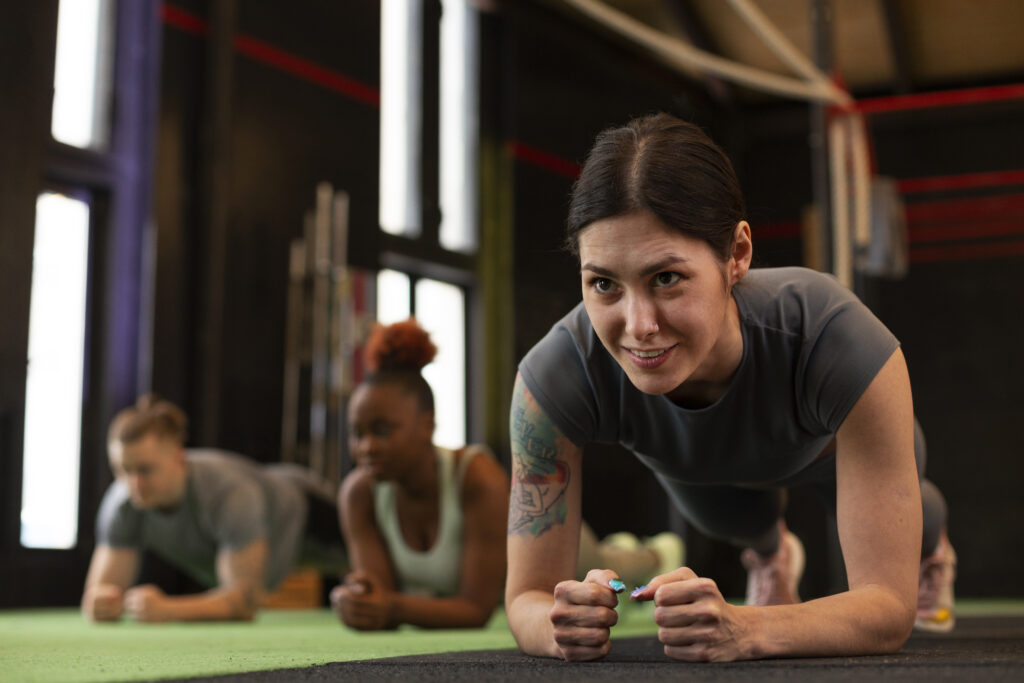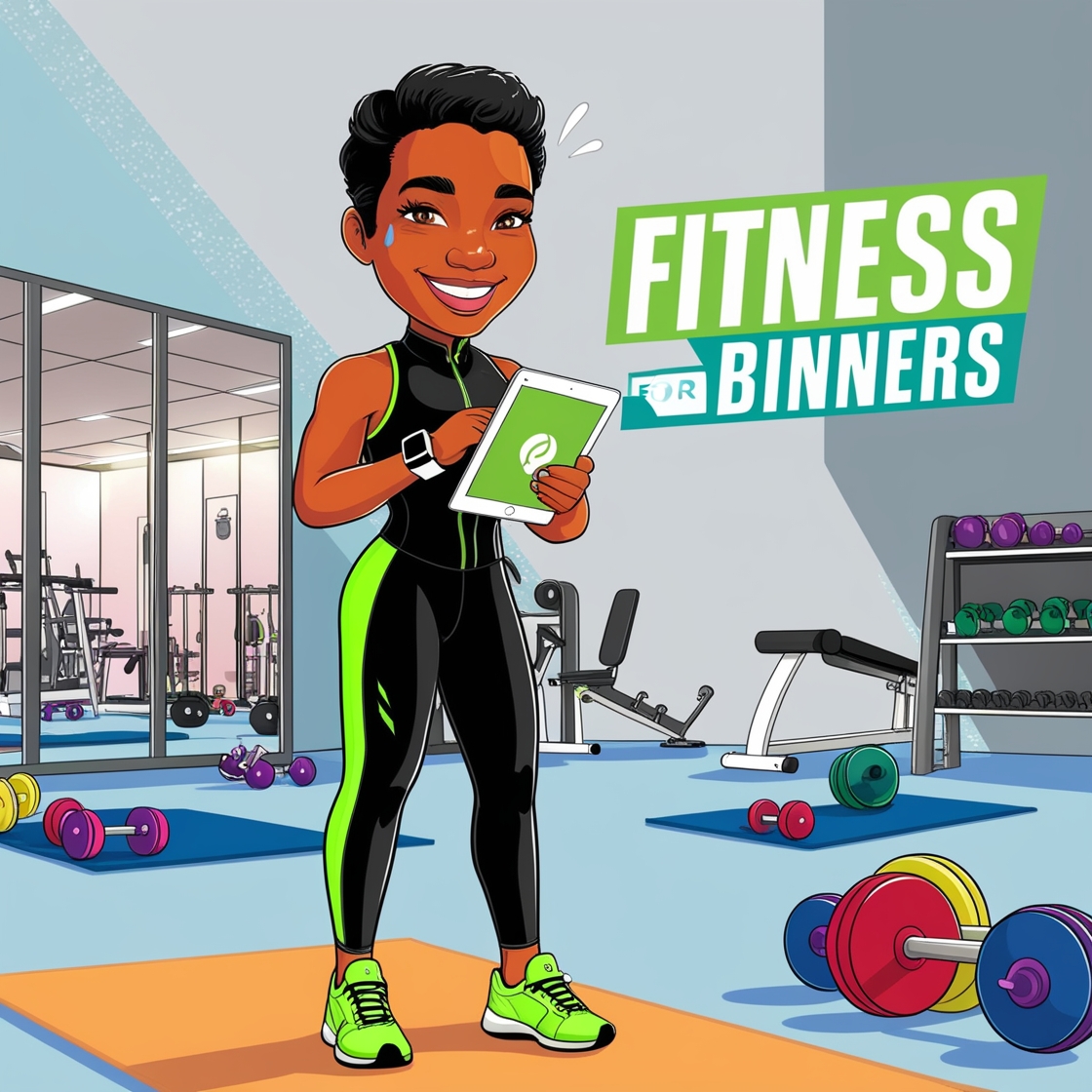
Embarking on a fitness journey can be both exciting and daunting, especially for beginners. Whether you aim to lose weight, build strength, or enhance your overall health, understanding the basics of fitness is essential. This guide will provide you with practical tips, essential terms, and effective strategies to kickstart your fitness journey. Fitness for Beginners:
Understanding the Importance of Fitness
Fitness encompasses various physical activities that improve health, boost energy levels, and enhance quality of life. Regular exercise can help you achieve:
- Weight Management: Maintaining a healthy weight is crucial for overall health and can reduce the risk of chronic diseases.
- Improved Mood: Physical activity releases endorphins, which can elevate your mood and alleviate stress.
- Enhanced Energy Levels: Engaging in regular exercise can boost your energy and reduce feelings of fatigue.
- Better Sleep Quality: Active individuals often experience improved sleep patterns, leading to greater overall wellness.
Setting Realistic Fitness Goals
Before diving into workouts, it’s important to set realistic and achievable fitness goals. Consider using the SMART criteria:
- Specific: Define your goal clearly. Instead of saying, “I want to get fit,” try “I want to run 5 kilometers without stopping.”
- Measurable: Ensure your goal can be tracked. For example, “I will exercise for 30 minutes, five times a week.”
- Achievable: Set a goal that challenges you but is still attainable.
- Relevant: Choose goals that align with your personal interests and lifestyle.
- Time-bound: Set a deadline to keep you motivated.
Choosing the Right Types of Exercise
For beginners, it’s crucial to explore different types of exercises to find what you enjoy most. Here are some popular options:
1. Aerobic Exercise
Also known as cardio, aerobic exercises increase your heart rate and improve cardiovascular health. Activities include:
- Walking: A great starting point for beginners, walking requires no special equipment and can be done anywhere.
- Running or Jogging: Gradually increase your pace and distance to build endurance.
- Cycling: Whether on a stationary bike or outdoors, cycling is low-impact and effective.
2. Strength Training
Building muscle strength is vital for overall fitness. Beginners can start with:
- Bodyweight Exercises: Push-ups, squats, and lunges use your body weight to build strength.
- Free Weights: Dumbbells and kettlebells can add resistance and challenge your muscles.
- Resistance Bands: These are portable and great for home workouts, providing resistance without heavy weights.
3. Flexibility and Mobility
Incorporating flexibility exercises can enhance your overall performance and prevent injuries. Consider:
- Stretching: Spend 5-10 minutes stretching after your workouts to improve flexibility.
- Yoga: This practice combines strength, flexibility, and mindfulness, making it a perfect addition to your routine.
Creating a Balanced Workout Plan
A well-rounded fitness plan should include a mix of aerobic, strength, and flexibility exercises. Here’s a sample weekly plan for beginners:
- Monday: 30 minutes of brisk walking + 15 minutes of stretching
- Tuesday: Bodyweight strength training (30 minutes)
- Wednesday: Rest or gentle yoga
- Thursday: 30 minutes of cycling + 10 minutes of stretching
- Friday: Strength training with free weights (30 minutes)
- Saturday: 30 minutes of jogging or walking
- Sunday: Rest or yoga
Essential Tips for Beginners
- Start Slow: Begin with shorter sessions and gradually increase the intensity and duration. This helps prevent injury and burnout.
- Listen to Your Body: Pay attention to how your body feels during and after exercise. Rest if you experience pain or discomfort.
- Stay Hydrated: Drink plenty of water before, during, and after your workouts to maintain hydration.
- Fuel Your Body: Eat a balanced diet rich in whole foods, including fruits, vegetables, lean proteins, and whole grains.
- Track Your Progress: Keep a journal or use fitness apps to log workouts, track progress, and celebrate milestones.
Overcoming Common Challenges
Starting a fitness routine can come with challenges. Here’s how to overcome some common obstacles:
Lack of Time
- Schedule Workouts: Treat your workouts like important appointments. Block off time in your calendar.
- Break It Up: If you’re pressed for time, split your workouts into shorter sessions throughout the day.
Motivation Issues
- Find a Workout Buddy: Exercising with a friend can keep you motivated and accountable.
- Mix It Up: Change your workouts regularly to prevent boredom and maintain excitement.
Fear of the Gym
- Start at Home: Begin your journey with home workouts to build confidence.
- Familiarize Yourself: If you decide to go to a gym, take a tour or schedule a session with a trainer to learn how to use the equipment.
Conclusion
Embarking on a fitness journey as a beginner can be both rewarding and empowering. By setting realistic goals, choosing enjoyable exercises, and following a balanced workout plan, you can build a strong foundation for a healthier lifestyle. Remember to stay patient and consistent—progress takes time, but with dedication, you’ll achieve your fitness goals and enjoy the countless benefits of a more active life. Start today, and unlock your potential!
